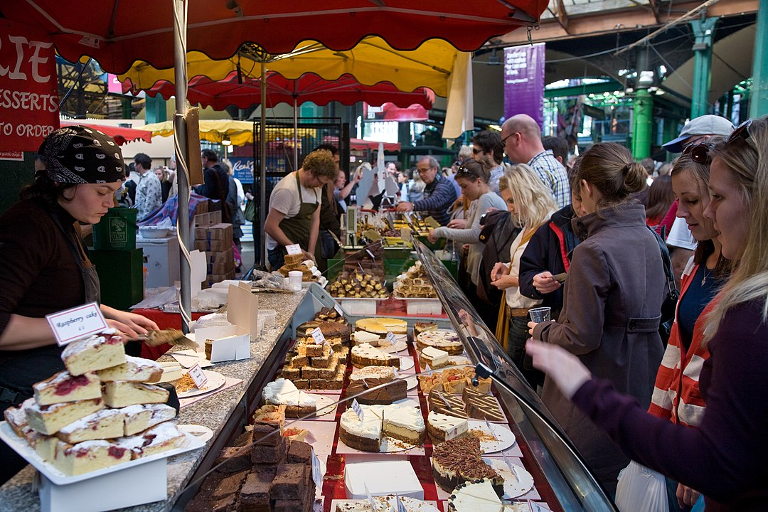A 1,200-year-old farming and fishing site known as the Horta or Huerta (garden) of Valencia has been recognised on the register of Globally Important Agricultural Heritage Systems (GIAHS), managed by the UN Food and Agriculture Organization (FAO).
This ancient and culturally rich, fertile area is made up of 6,000 small agricultural holdings and thousands of small farming plots of about a hectare each. Approximately 4,000 hectares are used to grow vegetables, especially onions, artichokes and pumpkins. Valencia oranges and tiger nuts are significant in the northern region whilst 2,000 hectares of centuries-old local rice varieties are cultivated in the southern area, which extends into the Albufera Natural Park. It’s no wonder, then, Spain’s Horta de Valencia wins recognition on the FAO’s global agricultural heritage list.
Growers employ sustainable, agricultural methods that preserve water and soil resources; and crop diversification, with heritage produce on smaller plots, bolsters resilience. The close proximity of the Horta to the city and surrounding areas, enables farmers to get access to a network of fresh food markets quickly. Consequently, the Horta sustains much of the Valencia region, as well as other parts of Spain and additionally exports to Europe.
Shopping at food markets is a way of life in Spain and throughout much of the Mediterranean. To extend the market experience and ensure the community as a whole has access to fresh food, the Central Market in Valencia launched an online shopping model to service some 56 neighbourhood areas, pre-COVID-19. Alongside face-to-face selling in the Market, there is also daily service to hospitality outlets and many online transactions. The market is clear on its role: underpinned by a strong community of traders enjoying resilient self-governance, it is a vital community space with a focus on quality, local produce with a short supply chain and a commitment to sustainability.
Not dissimilar, is historic Borough Market in London. Selling food to the Southwark community for over 1000 years, this ancient trading post is still very much part of London life. Positioning itself as a destination spot where local and international vegetables, high-welfare meat and sustainable fish, sit alongside every-day roots, dark leafy greens and crisp British apples. Borough Market operates on multiple levels. The food-centric relationship the Market has with its customers, is enriched further by its education programmes, cookery demonstrations and public debates. And many of the stall holders are producers themselves, bringing unique product knowledge and expertise to the space, championing and reinforcing the farm-to-market approach to buying food.
Still, all markets have significance. Whether indoor or outdoor, urban or rural, these trading places give us a simple, yet crucial connection back to whole foods, unlike the dictatorial flow of a supermarket, where food is picked, packed and presented in regimented aisles. In contrast, food markets are dynamic. They are activist spaces, in fact, showing off a riot of colours, tastes and textures, nudging us to re-think our relationship with raw ingredients and look at our culinary habits and kitchen skills in a how to cook-from-scratch way. Packed full of opportunity, vitality and life, markets are a leveller, allowing people from all walks of life an affordable entry point to purchase fresh food.
The question is, how do communities outside of our large cities gain access to this way of buying food. Returning to Valencia, where the local community has access to a central city market and a robust network of local markets, not only strengthens food security but allows people to shop for reasonably priced food. So, whether people live in the centre of the city or outside on the periphery, shopping for essential food is easy.
In the UK, however, according to Dr Megan Blake at the University of Sheffield, some 1.2 million people are living in food deserts, relying on corner shops with limited supplies of fresh food and higher prices.
Farmers markets could have a big part to play here. There is an assumption that farmers markets are niche and simply for the middle classes. But now, as society adjusts to living with COVID-19, is the perfect time for disruption and to reimagine how produce from rural farms and producers might come together to create a regular, reliable and affordable offering for people who need it the most. It is especially important, in socially deprived and low income areas where people struggle to buy fresh food and as Blake also points out, are reluctant to engage with online shopping.
Using the latest digital technology, the increase of online direct-to-consumer (DTC) marketing is enabling farmers, food markets and food producers to deliver their products directly to our homes. Vegetable box schemes, online deliveries from food markets, weekly fish, meat and dairy subscriptions, as well as pick-and-mix shopping from collaborative digital food hubs are changing the way consumers access farm-fresh ingredients. According to The Food Institute, an additional benefit of DTC, is being able to own the customer relationship by removing the need to rely on retail. And owning this customer relationship, allows food producers and market traders, to lead with their own values and narrative, resonating with like-minded customers and building trust.
Stand-alone independent food markets strengthen all sorts of community relationships and support local food economies. With more refined thinking and education and outreach initiatives, markets can bridge the gap between grower or producer and consumer, to communicate why it is so important that we reconnect with the realities of growing food. Yet despite the benefits, buying food in this way will not be for everyone. But having an alternative – being able to access affordable food, with less wastage and environmental impact outside of a supermarket setting – can only bolster food security and help promote a shift to a more holistic, sustainable food future. Market diversity, then, matters more than ever.
Teaser photo credit: Borough Market, By Diliff – Own work, CC BY-SA 3.0, https://commons.wikimedia.org/w/index.php?curid=4978844





